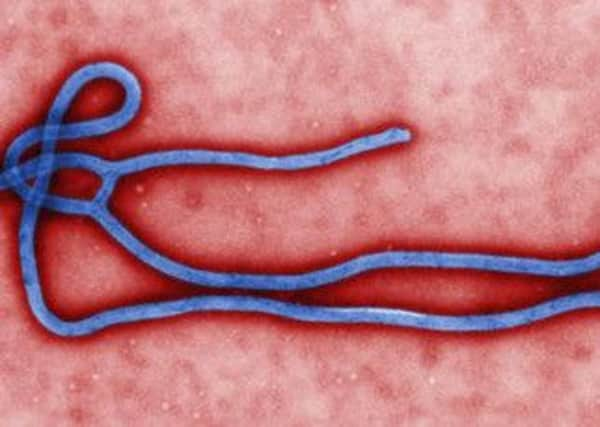Fear spreads as medics treat first US Ebola case


The unidentified man was critically ill and has been in isolation at Texas Health Presbyterian Hospital since Sunday, federal health officials said. Officials said they would not reveal his nationality or age.
Authorities have begun tracking down family, friends and anyone else who may have come in close contact with him and could be at risk. Officials said there are no other suspected cases in Texas.
Advertisement
Hide AdAdvertisement
Hide AdAt the Centres for Disease Control and Prevention, Director Tom Frieden said the man left Liberia on 19 September, arrived the next day to visit relatives and started feeling ill four or five days later. Mr Frieden said it was not clear how the man became infected.
“I have no doubt that we’ll stop this in its tracks in the US. But I also have no doubt that – as long as the outbreak continues in Africa – we need to be on our guard,” Mr Frieden said, adding that it was possible someone who has had contact with the man could develop Ebola in the coming weeks.
“But there is no doubt in my mind that we will stop it here,” he said.
Stanley Gaye, president of the Liberian Community Association of Dallas-Fort Worth, said the 10,000-strong Liberian population in North Texas is sceptical of the CDC’s assurances because Ebola has ravaged their country. “We’ve been telling people to try to stay away from social gatherings,” Mr Gaye said at a community meeting on Tuesday. Large get-togethers are a prominent part of Liberian culture.
“We need to know who it is so that family members can all go get tested,” Mr Gaye said “If they are aware, they should let us know.”
Ebola symptoms can include fever, muscle pain, vomiting and bleeding, and can appear as long as 21 days after exposure to the virus.
The disease is not contagious until symptoms begin, and it takes close contact with bodily fluids to spread. The association’s vice-president encouraged all who may have come into contact with the virus to visit a doctor and she warned against alarm in the community.
“We don’t want to get a panic going,” said vice-president Roseline Sayon. “We embrace those people who are coming forward. Don’t let the stigma keep you from getting tested.”
Advertisement
Hide AdAdvertisement
Hide AdMs Frieden said he didn’t believe anyone on the same flights as the patient was at risk.
“Ebola doesn’t spread before someone gets sick and he didn’t get sick until four days after he got off the airplane,” she said.
Four American aid workers who became infected in West Africa have been flown back to the US for treatment after they became sick.
They were treated in special isolation facilities at hospitals in Atlanta and Nebraska. Three have recovered. A US doctor exposed to the virus in Sierra Leone is under observation in a similar facility at the National Institutes of Health.
The man, who arrived in the US on 20 September, began to develop symptoms last Wednesday and sought care two days later. But he was released. At the time, hospital officials didn’t know he had been in West Africa. He returned later as his condition worsened.
Blood tests by Texas health officials and the CDC separately confirmed his Ebola diagnosis on Tuesday.
State health officials described the patient as seriously ill. Epidemiologist Dr Edward Goodman said he was able to communicate and was hungry.
The hospital is discussing if experimental treatments would be appropriate for use in the latest US case, Ms Frieden said.